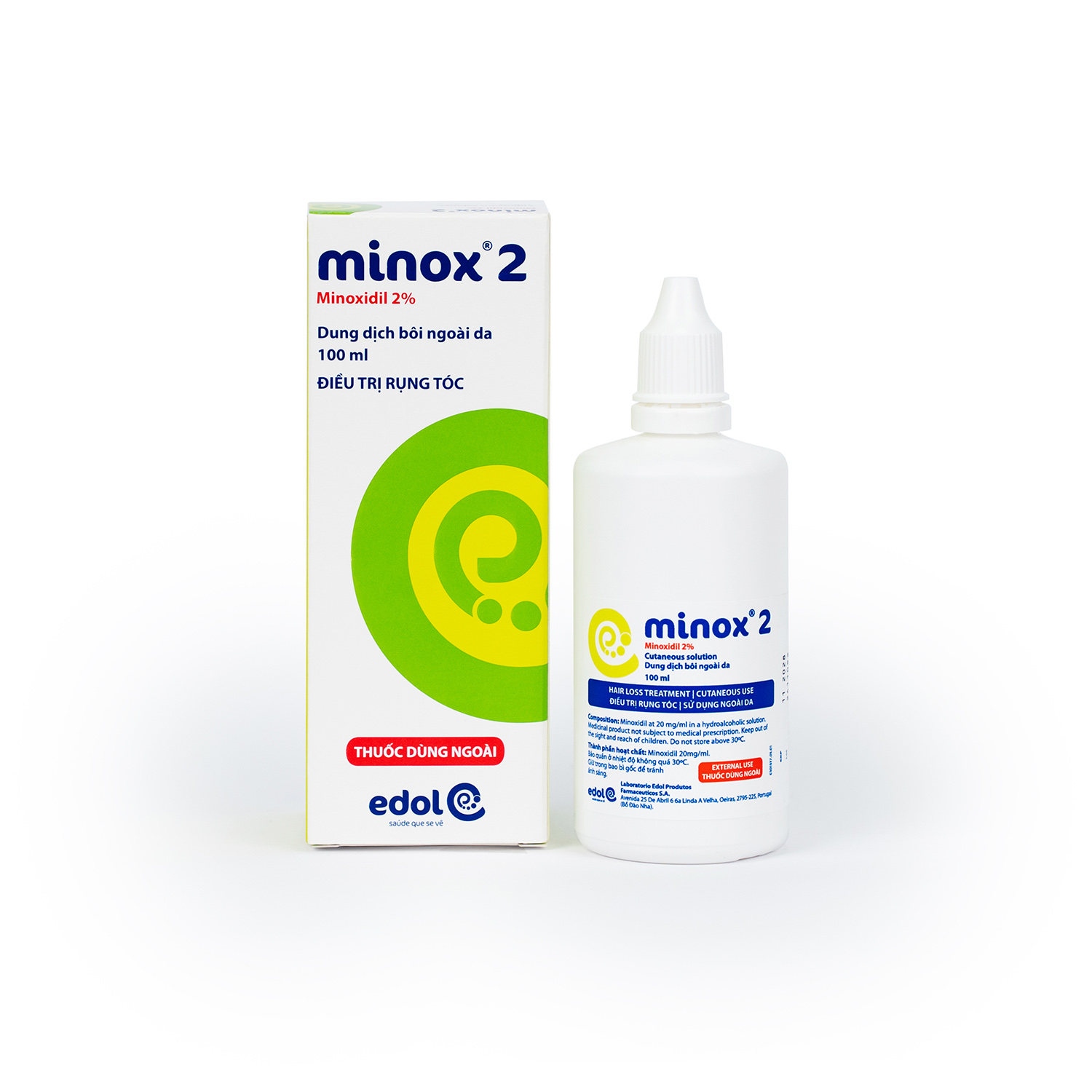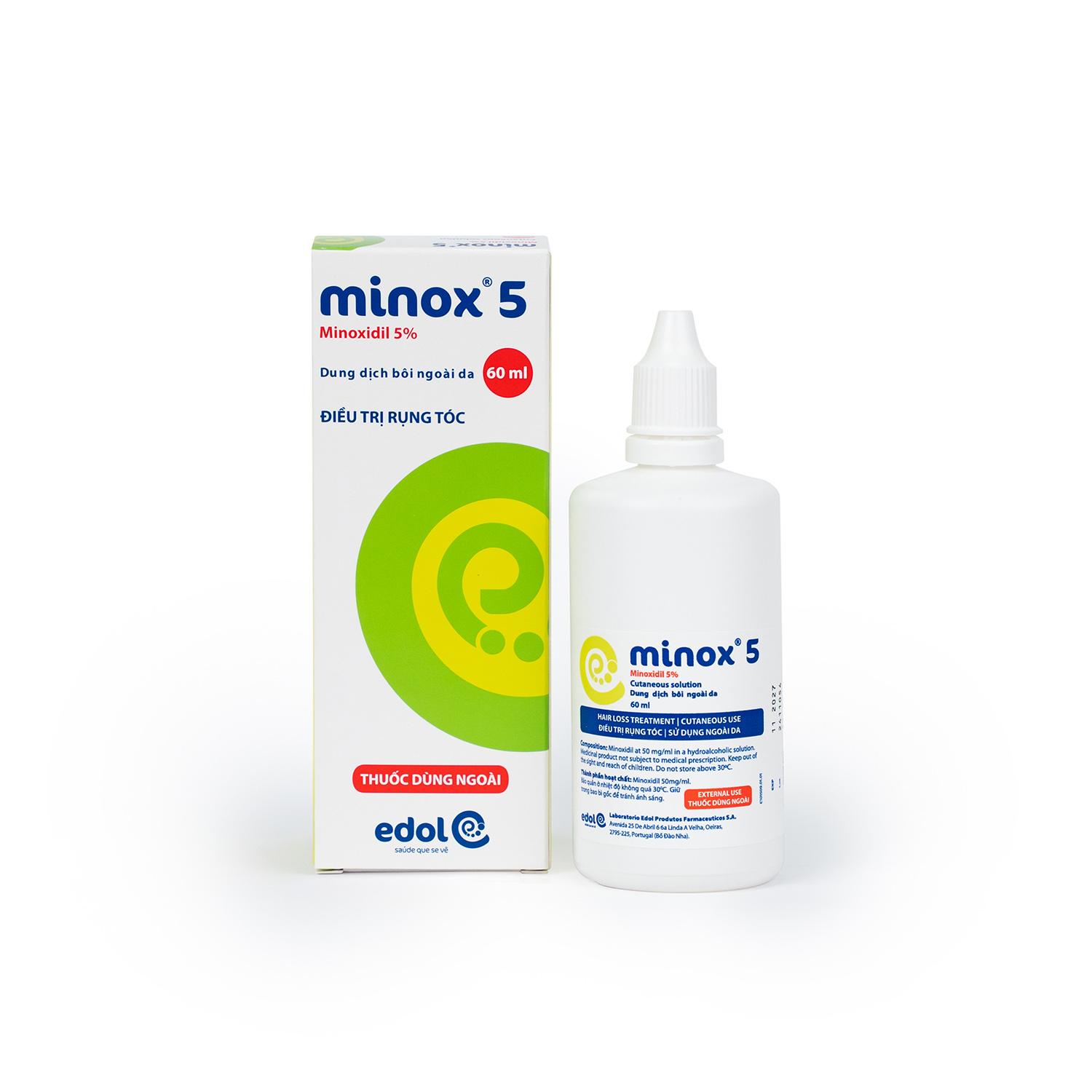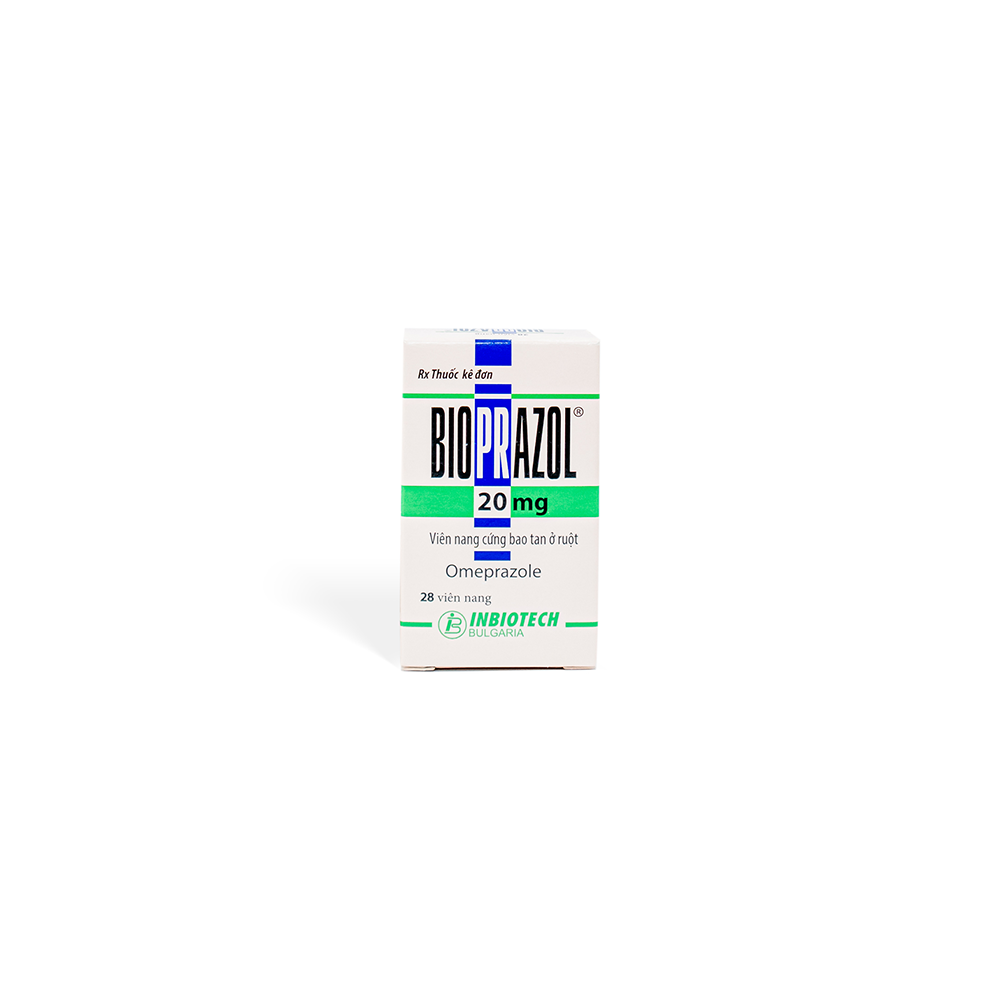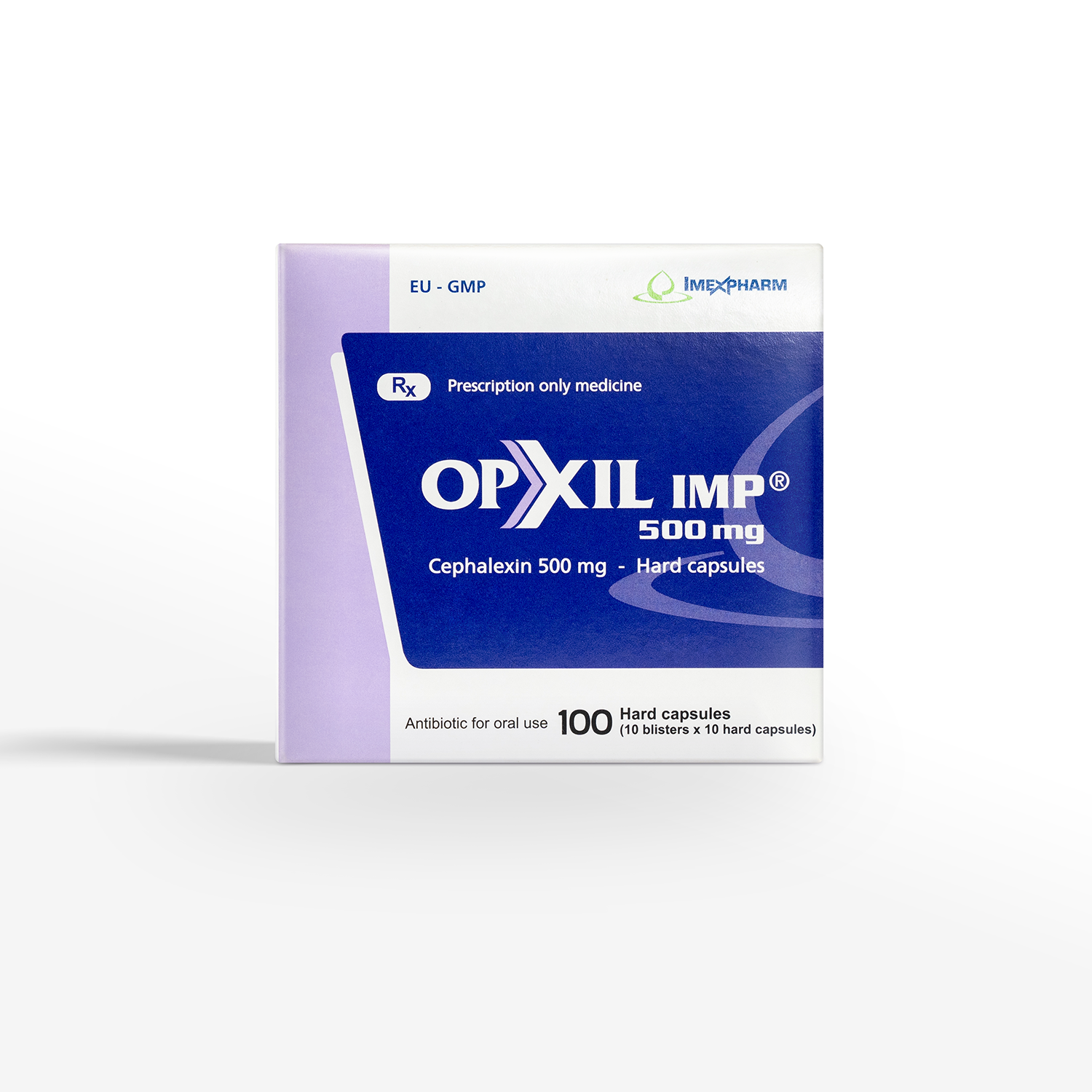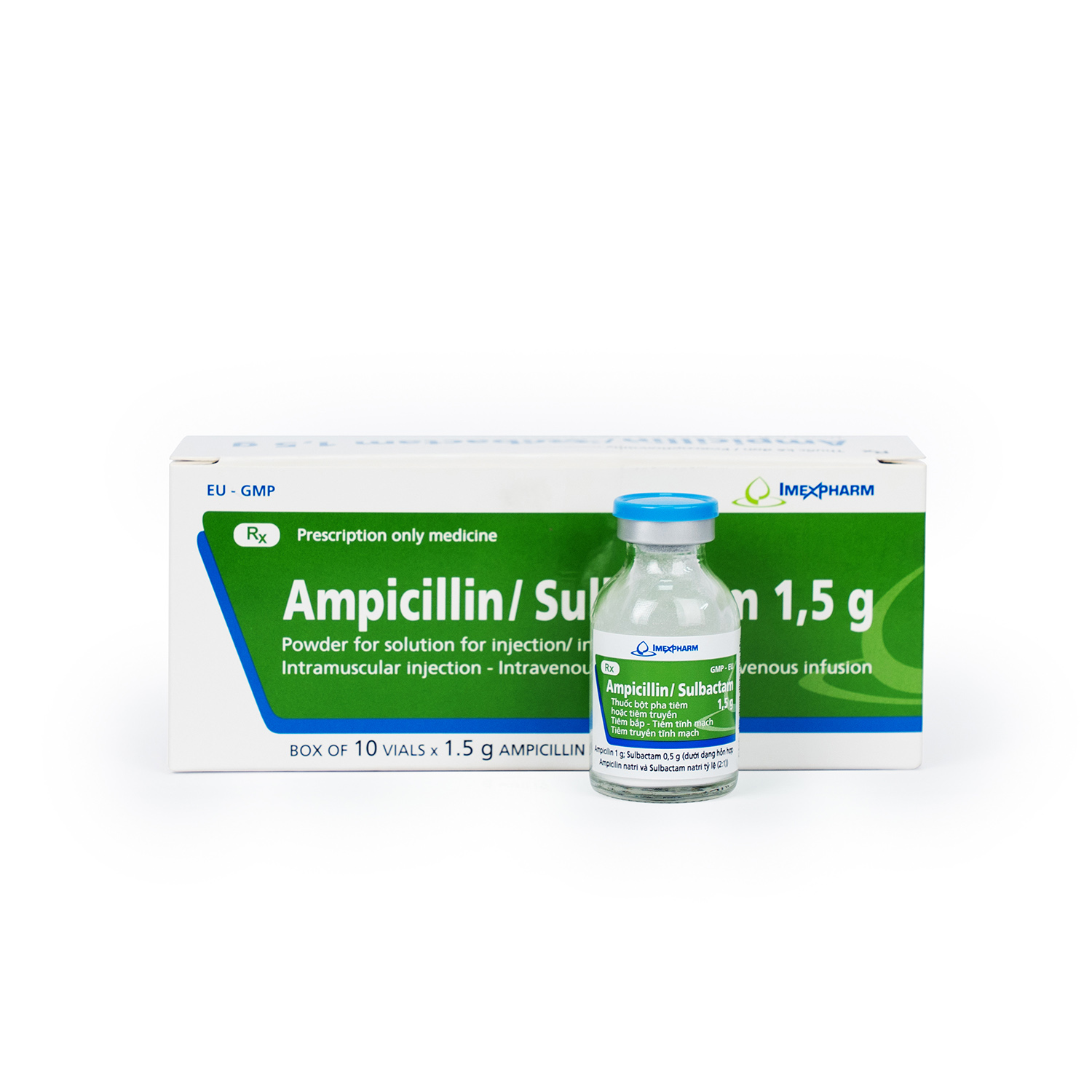

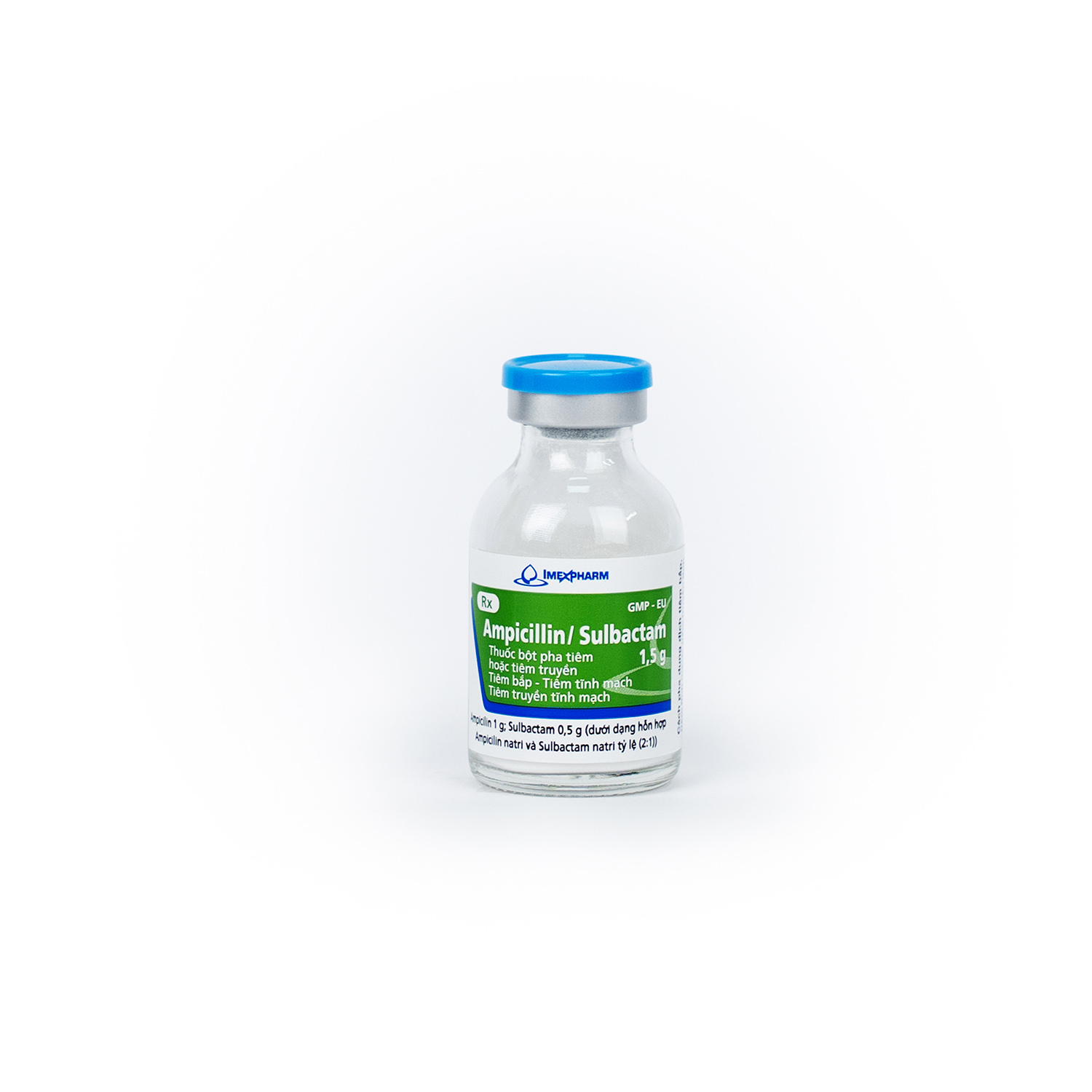
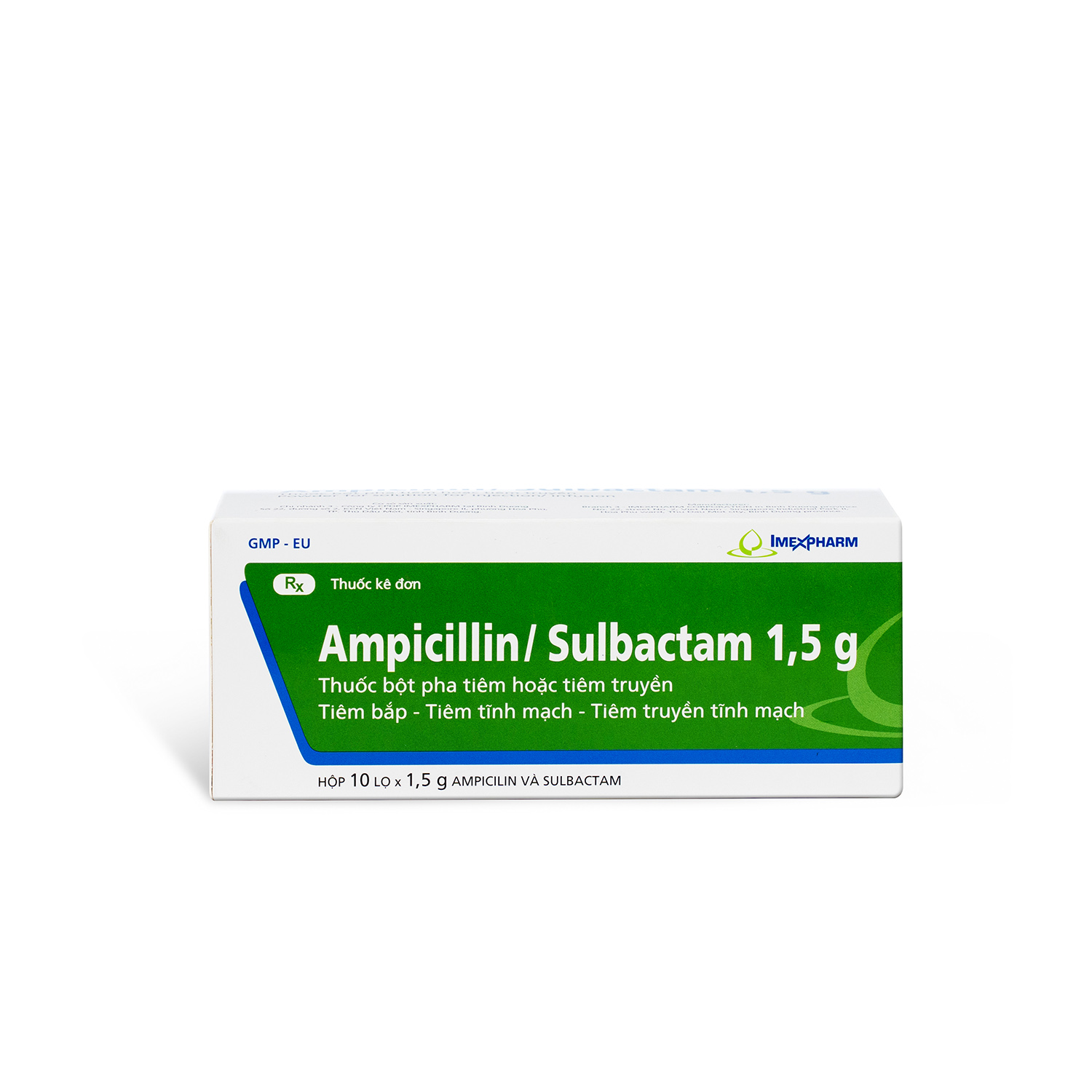
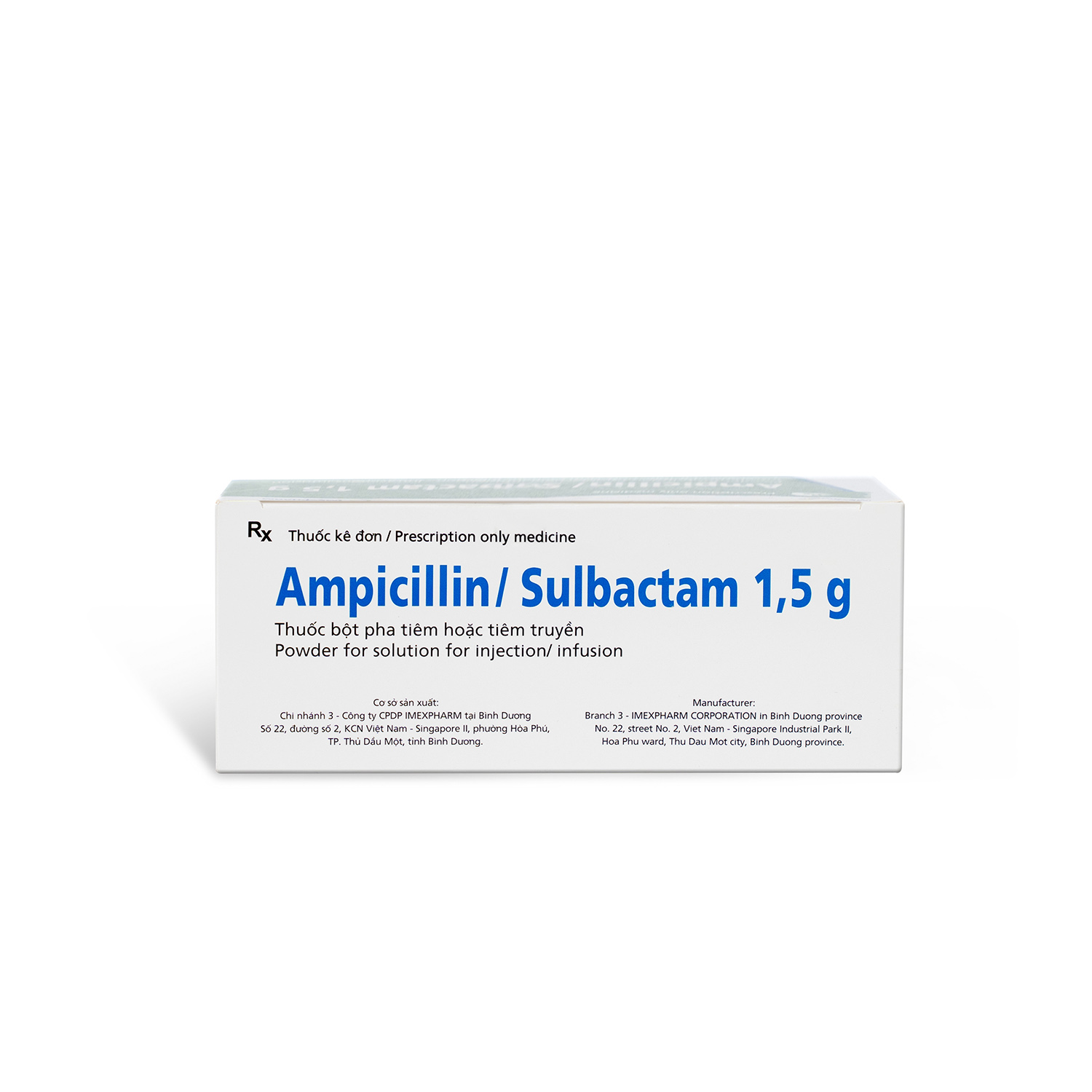
Ampicillin/Sulbactam 1,5g
Manufacturer
Branch 3 - IMEXPHARM CORPORATION in Binh Duong province
Applicant company
Imexpharm Pharmaceutical Joint Stock Company
Active ingredient
Ampicillin (in the form of a mixture of sodium ampicillin and sodium sulbactam in a 2:1 ratio); Sulbactam (in the form of a mixture of sodium ampicillin and sodium sulbactam in a 2:1 ratio)
Content
Ampicillin 1g / Sulbactam 0,5g
Shelf life
24 months
Dosage Form
Injectable powder for reconstitution or infusion
Package
Box of 1 vial x 1.5g, Box of 10 vials x 1.5g
Visa Number
893110271124
Issuing Date
06/05/2024
Therapeutic area
Antibiotics
Indication
Used for the treatment of infections caused by bacteria susceptible to the drug, including:
- Upper and lower respiratory tract infections: sinusitis, otitis media, epiglottitis, bacterial pneumonia.
- Urinary tract infections and pyelonephritis.
- Intra-abdominal infections: peritonitis, cholecystitis, endometritis, pelvic inflammatory disease.
- Septicemia.
- Skin and soft tissue infections.
- Bone and joint infections.
- Gonococcal infections.
Sodium Ampicillin/Sodium Sulbactam for intramuscular or intravenous injection may also be used before and after surgery in patients undergoing abdominal or pelvic surgery who are at risk of peritoneal infection to reduce the incidence of postoperative wound infections. It may also be used for prophylaxis of postpartum infections in cases of abortion or cesarean section.
Dosage
Adults:
The daily dosage is 1.5 g (equivalent to 1 g of ampicillin and 0.5 g of sulbactam) to 12 g (equivalent to 8 g of ampicillin and 4 g of sulbactam), divided every 6 or 8 hours, up to a maximum daily dose of 4 g of sulbactam. For milder infections, the dose may be divided every 12 hours.
| Infection severity | Daily dose of Ampicillin/Sulbactam |
|---|---|
| Mild | 1.5 – 3 g (equivalent to 1 g of ampicillin and 0.5 g of sulbactam to 2 g of ampicillin and 1 g of sulbactam). |
| Moderate | Up to 6 g (equivalent to 4 g of ampicillin and 2 g of sulbactam). |
| Severe | Up to 12 g (equivalent to 8 g of ampicillin and 4 g of sulbactam). |
- For surgical infection prophylaxis, administer 1.5 g to 3 g of ampicillin/sulbactam at the time of anesthesia to allow the drug sufficient time to reach effective concentrations in the serum and tissues during surgery. The dose can be repeated every 6 or 8 hours; usually, the medication is stopped 24 hours after surgery unless continued treatment with ampicillin/sulbactam is indicated.
- Treatment of uncomplicated gonococcal infections: Administer a single intramuscular or intravenous dose of 1.5 g ampicillin/sulbactam. Simultaneously, 1 g of probenecid should be taken orally to prolong the concentrations of sulbactam and ampicillin in the plasma.
For children, infants, and newborns:
- The dosage of ampicillin/sulbactam for most infections in children, infants, and newborns is 150 mg/kg/day (equivalent to 100 mg/kg/day of ampicillin and 50 mg/kg/day of sulbactam).
- For children, infants, and newborns, the total daily dose is typically divided every 6 or 8 hours, similar to regular ampicillin dosing.
- For newborns under one week of age (especially premature infants), the recommended dose is 75 mg/kg/day (equivalent to 50 mg/kg/day of ampicillin and 25 mg/kg/day of sulbactam), divided every 12 hours.
For patients with renal impairment:
- In patients with severe renal impairment (creatinine clearance ≤ 30 ml/min), the pharmacokinetics of ampicillin and sulbactam are similarly affected. Therefore, the concentration ratio of the two drugs in plasma remains unchanged. The number of injections should be reduced in these patients, similar to the adjustment for ampicillin use.
- The recommended dosing interval for patients with renal impairment:
| Creatinine Clearance (mL/min) | Dosing interval |
|---|---|
| > 30 | 6 – 8 hours |
| 15 – 30 | 12 hours |
| 5 – 14 | 24 hours |
| < 5 | 48 hours |
Patients who need to restrict sodium intake:
- During treatment, patients should limit their sodium intake, as each vial of Ampicillin/Sulbactam 1.5g contains approximately 115 mg (5 mmol) of sodium.
Contact


